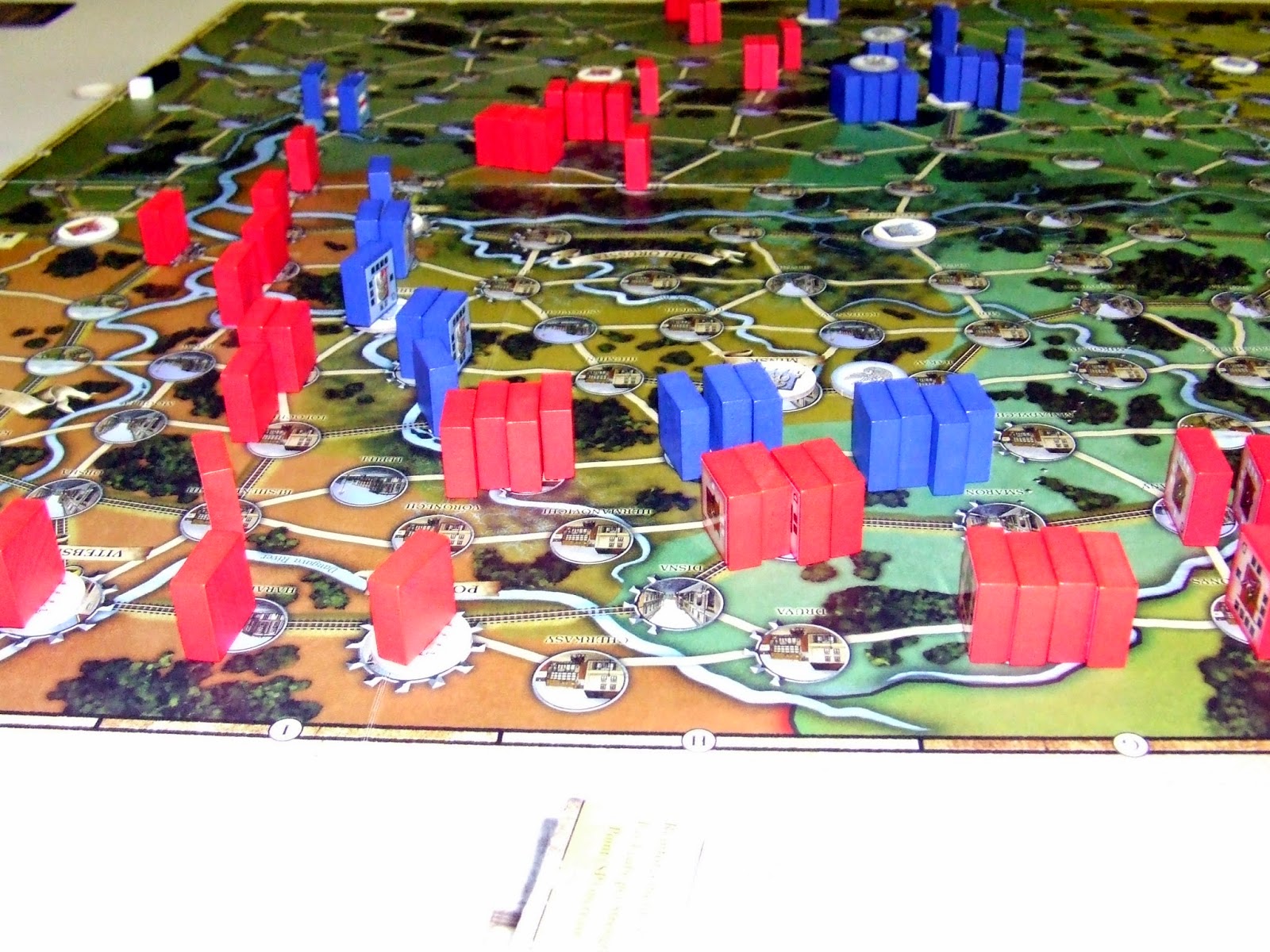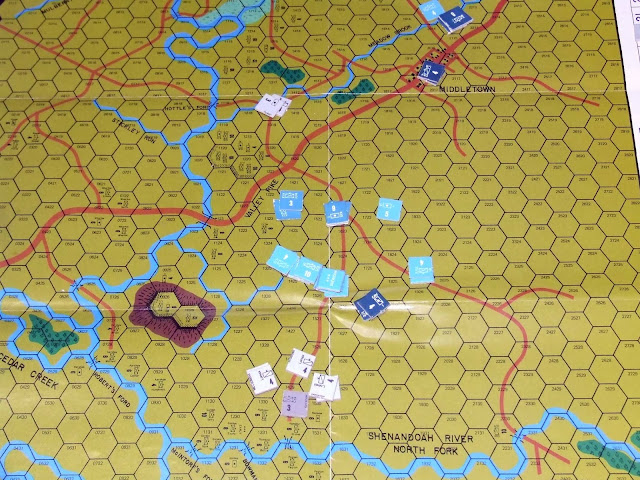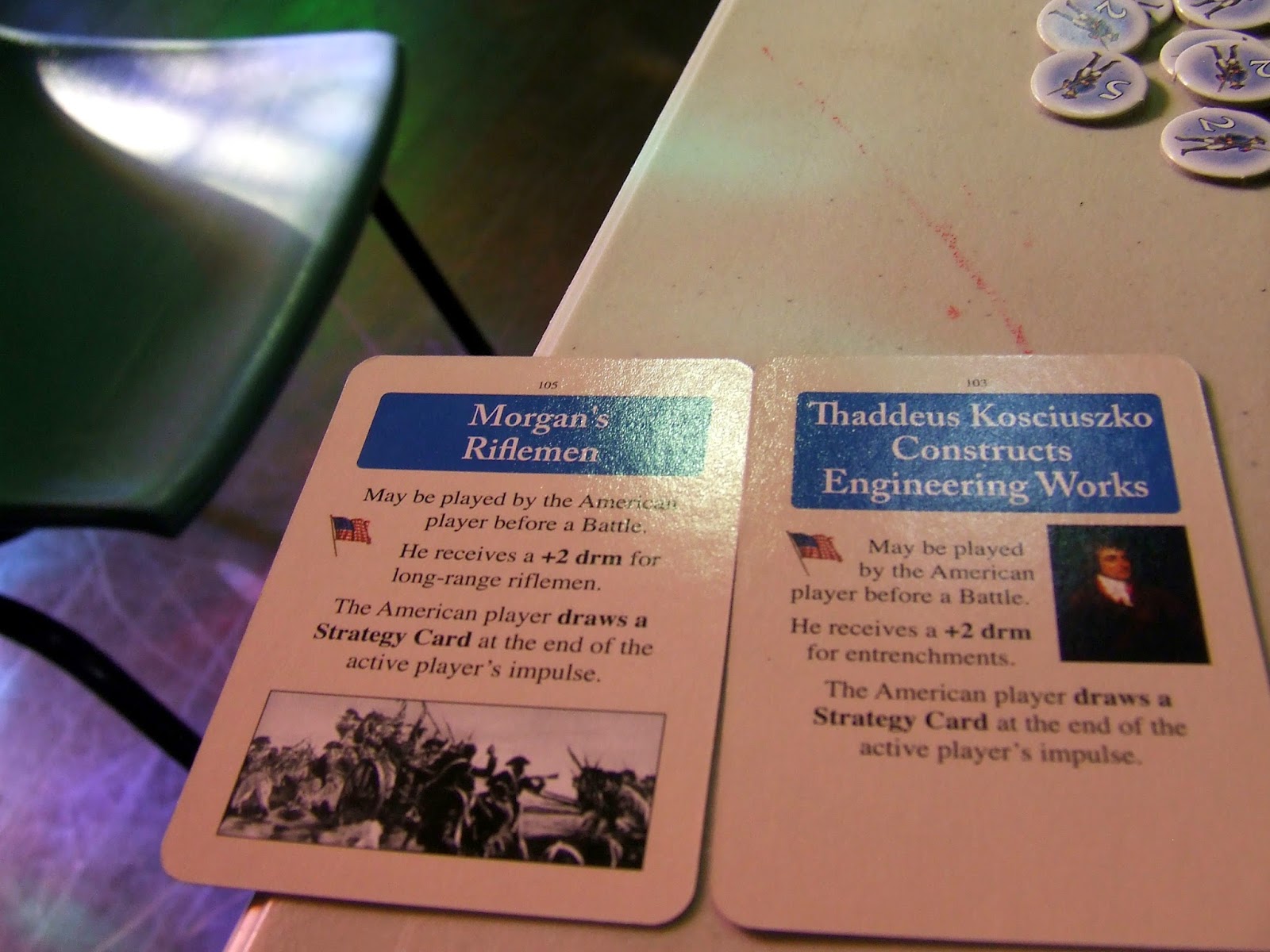When Eagles Fight
by
Command Magazine edition
Extracts from the diary of Nicholas II, Emperor of
All the Russia
August 1914
How sad that my good cousin
Willy has been led into this misguided support of the crumbling
Austro-Hungarian Empire in its reckless attempts at expansion into the Balkans.
We could not allow the subjugation of Serbia Germany
Fortunately our glorious army
was able to fulfill its commitments to France
and mass enough troops in Poland Prussia
Our real success though, came
in Galicia Kiev
September 1914
While the Second Army
distracted the main German forces the rest of our glorious Army was able to
mobilise and secure most of the Prussian Front with a wall of divisions. We
managed to make several minor attacks against weak German forces, with some
success. The Germans however lacked
sufficient forces to counter attack successfully.
On the Galician Front I
realised that the Austro-Hungarian forces were extremely fragile and the weak
link in the Central Powers armoury. They were deployed badly with Conrad
appearing to believe that he need fight in concentrated formations rather than
holding a continuous line. This meant our aggressive Cossack cavalry could
sweep behind them cutting them off from supply.
I therefore ordered STAVKA to focus its efforts on the Galician front.
General Thomaskovich showed the
aggressive nature which lay behind his normal caution and drove forward
relentlessly, turning the Austro-Hungarian flanks and encircling several Corp.
Obsessed with this idea of the offensive Conrad again ordered General Mack to
launch counteroffensive’s which, while they did cause some casualties on both
sides, did little to help. Overall they
were largely misguided, as the Austro-Hungarian forces should have retreated to
form a continuous line in the mountains. Instead they were left in the open,
with unprotected flanks.
October 1914
Once again we are able to build
up our front in East Prussia
In Galicia General
Thomaskovitch once again drives forward, encircling Austro-Hungarian units and
destroying them. Still failing to
understand the flimsy nature of the Austro-Hungarian Army, Conrad again
endeavoured to hold the line rather than retreat.
November & December 1914
Our Army continues to build up
on all fronts. Once again we launch minor local attacks against weak German
forces. STAVKA is attempting to draw
German forces against the Russian Army rather than let them send forces to
support Austria France
The war is showing up some of
the Empires strengths and weaknesses.
Men are still flocking to the colours and we can replace all our losses
with ease. However, manpower planning
has been weak and too many essential workers have been stripped out of our
factories. As a result we are starting to suffer from ammunition shortages. A
problem enhanced by the fact that ammunition consumption has been far higher
than anybody ever expected. Alexandra
advises me that her trusted confident Rasputin has recommended that we should
arrange to have ammunition made in China
The Germans are increasingly
building up forces in East Prussia , however we
have built up a fairly solid line along the rivers and swamps and still hold Warsaw
In Galicia Conrad still tries
to hold too far forward and once again we were able to do the sweeping
encircling movements that destroy large Austro-Hungarian forces.
January & February 1915
Little changes on the Eastern
Prussian Front but in Galicia Carpathian
mountains .
The ammunition shortages are
one of the biggest problems we face but although our artillery is weak we still
have such large forces we can make successful offensives.
March & April 1915
Once again Conrad fails to
appreciate the dashing spirit of the Cossack cavalry who charge into the rear
of Austro-Hungarian units to encircle them and cut them off from supply.
Although some of these formations are rebuilt, they have lost the core of their
best soldiers and they never come back with the enthusiasm of the early days of
the war. Many of the new recruits are
from the minor nationalities and have no loyalty to this Austrian dominated
Empire. The ammunition shortages is no
better, something will have to be done about this, Rasputin assures us supplies
from China
May 1915
In East
Prussia more German units are arriving, their deployment however
is poor and they have left a weak flank in central Poland
In the Carpathian’s the
Austro-Hungarian Army now make skilful use of the rugged terrain. Unfortunately they have not paid sufficient
attention to supply and once again General Thomaskovitch is able to encircle
units and inflict crippling losses.
All of this has been done
despite a complete disaster in the ammunition resupply. The ammunition supplied by the Chinese is a
dreadful failure and most of it does not detonate. Once again our glorious
troops have overcome these deficiencies and given us magnificent
victories. We cannot afford any more of
Rasputin’s advice and I commented to a number of junior officers that it would
be helpful if accident befell him!
June 1915
Fighting continues to rage west
of Warsaw
In the eastern Carpathian’s the
steady weakening of their forces means the Austro-Hungarian Army has now been
pushed back into the open plains, although they still hold the western flank of
the Carpathian’s in strength.
My beloved Alexandra is
distressed to learn of Rasputin’s unfortunate death when he fell under a
carriage while drunk.
July 1915
Fighting now rages in central Poland Eastern Prussia , where
we are gaining major successes under General Thomaskovich’s inspiring
leadership. Our successful attacks may
not take territory but have inflicted heavy casualties on the Germans. The German army has now been weakened across
its entire front, allowing us to stage major attacks against many weak
units.
In the east Carpathians, our
forces continue to drive back and destroy the Austro-Hungarian Army. The latter are reduced to a fraction of the
pre-war strengths and are unable to launch any successful counter-attack or
construct a defensive line.
Even our continuing and
worsening ammunition shortage does not greatly effect our attacks. Our
numerical superiority is such that we can still launch major offensives against
Germans and the crumbling Austro-Hungarian forces
Disturbing reports are reaching
us from the Far East that Japan is preparing to stab us in the back while we
are engaged in this European war and seize all our Pacific possessions.
August 1915
Again General Thomaskovich
drives forward in East Prussia, further weakening the German front with minimal
casualties to our wonderful Army. It is clear that the Germans will soon have
to fall back extensively, either to Danzig or perhaps even further.
In Hungary, for we are now well
into the Austro-Hungarian Empire and continue to push the weakening
Austro-Hungarian Army further back.
STAVKA is now planning our drive on Budapest.
August 20th - Rumors reach us that General Conrad has been shot and General Mack has been
appointed C-in-C of the Austro-Hungarian Army. Further reports say that he is
in despair and has advised the Emperor he should consider a negotiated peace.
August 21st - I receive
a personal message from the German Emperor via the Swedish Embassy. Wilhelm informs me that he has discovered
from General Mack, the scale of the monstrous Austrian deceit, engineered by
Conrad, whereby the Germans were led treacherously into this war. He hints at a
conference to discuss an end to the war.
France and Britain have also been advised. I send messages to all three
countries stating that Russia will act in coordination with its Allies but that
we are prepared to consider a negotiated end to the war.
August 23rd - Cousin
Willie sends a further message to suggest possible terms for discussion. As the Austro-Hungarians caused this war he
suggests the breakup of their Empire.
Austria and Hungary would be turned into two minor powers. Eastern Poland would be given to Russia
while the minor components could be absorbed into some of the Balkan
states. He suggests that perhaps the
Czech’s may wish to become a German province.
In turn, Germany will return Alsace-Lorraine to the French and the High
Seas Fleet would be handed over to the British.
August 24th - After
an exhausting day with a flood of telegrams back and forwards it is agreed
there will be a general ceasefire as of midday (Berlin time) tomorrow and a
peace conference will meet in Paris on the 27th. I arrange for details of this settlement to
be passed to the Japanese embassy.
August 25th - Dear
Cousin Willie telegrams to advise me that he is arranging for some of the
misguided Russian revolutionaries currently held in Germany, such as Lenin, to
be dispatched immediately to Leningrad to be dealt with by
the Russian judicial system.
(Steve T)























































